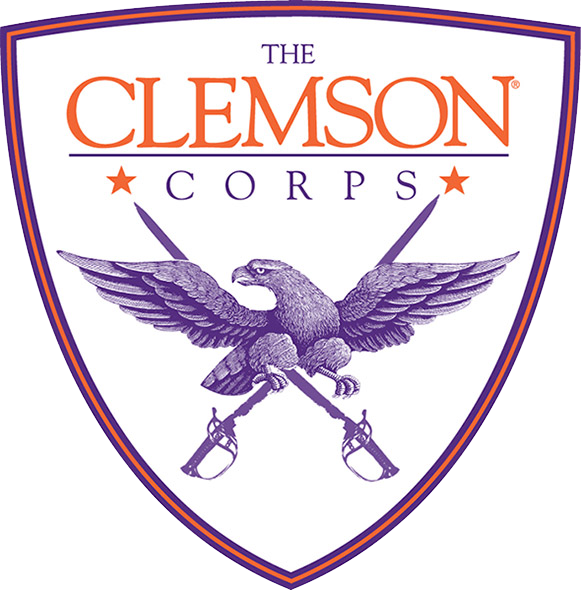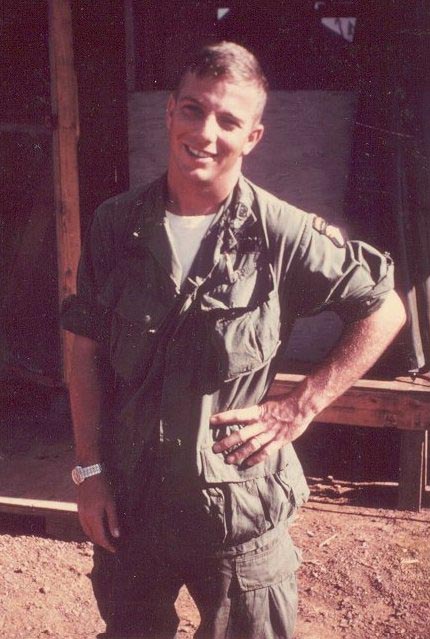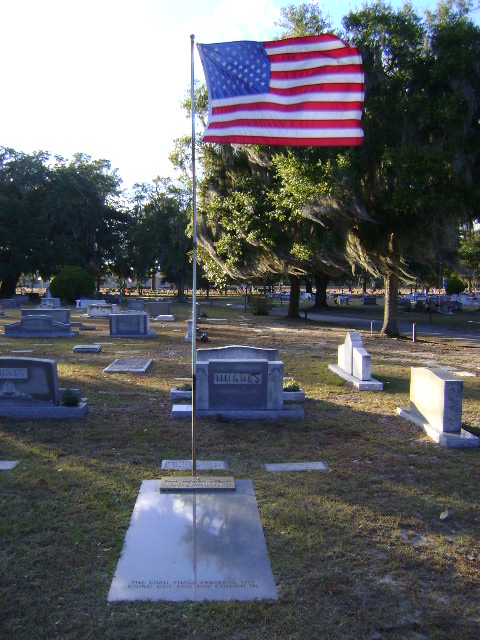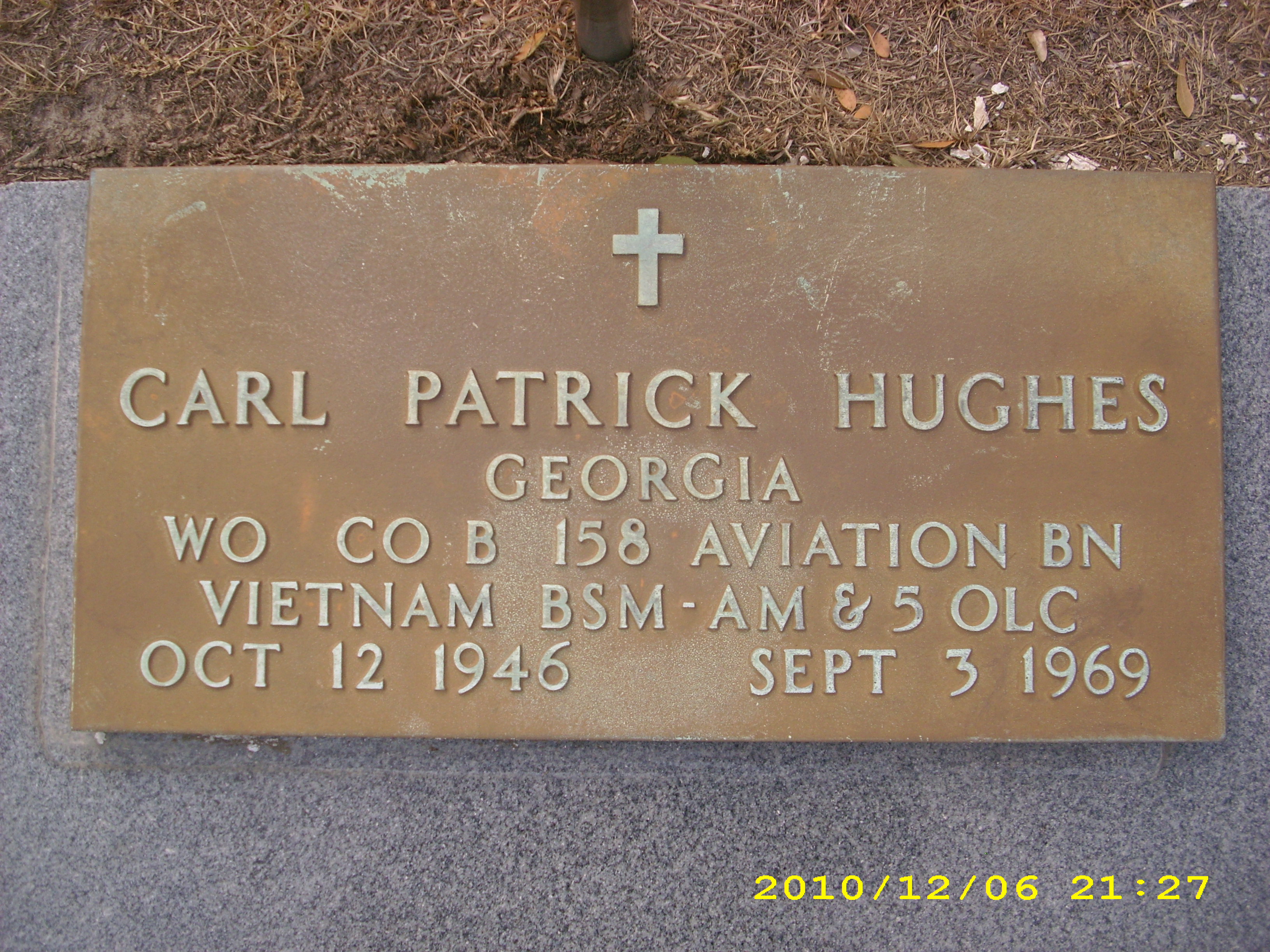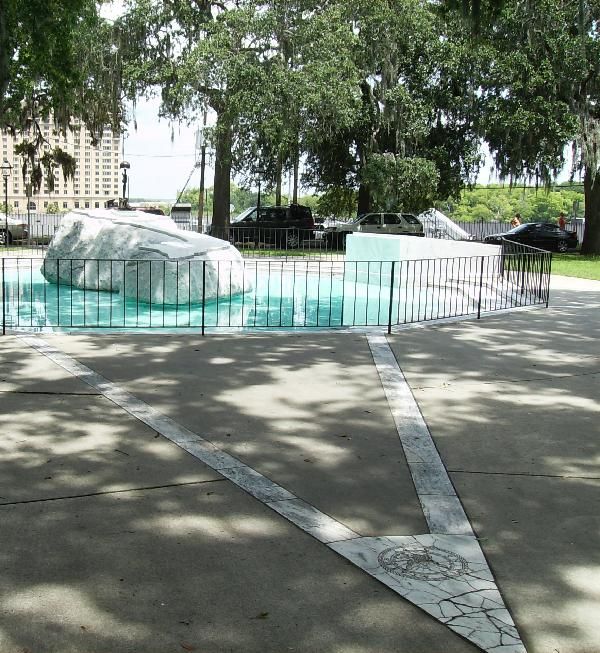
Carl Patrick Hughes

1968
Mechanical Engineering
Rifle Team
Savannah, GA
Wife: Nancy Fountain Hughes of Savannah, GA
Army, Warrant Officer 1
B Company, 158th Assault Helicopter Battalion, 101st Aviation Group, 101st Airborne Division
Bronze Star, Air Medal with letter “V” device and numeral 5, Good Conduct Medal, National Defense Service Medal, Vietnam Service Medal with one bronze service star, Republic of Vietnam Campaign Medal, Republic of Vietnam Gallantry Cross Unit Citation with Palm, Republic of Vietnam Armed Forces Honor Medal (Second Class), Expert Badge with Pistol Bar, Sharpshooter Badge with Auto Rifle Bar with Rifle Bar, Army Aviator Basic Badge
Oct 12, 1946
Sep 3, 1969
Killed in Action
Greenwich Cemetery Lot 39, Block G, section 111, in Savannah, GA.
SW
Personal Remembrances
"I knew Mr. Hughes as Carl even though he went by Pat. We were roommates all through our Army flight training as members of WOC class 69-7. That was nearly a year's worth of being roommates at both Fort Wolters and Hunter AAF. We shared competitive anxieties of passing every segment of our flight instruction. This extended competition lasted from our first 'solo' flights to our first 'night formation' flying above Georgia several months later. Flight school was hard and extremely dangerous.
A few died in every flight class due to mechanical failures or pilot errors. In 1968 helicopter warfare was still fairly experimental. We were all learning together, including the generals and aircraft designers. There were a lot of failures at every level. Lots of helicopter crews died in that great experiment, and still do to this day.
Carl and I shipped to Vietnam in the Spring of 1969. Both to the 158th Aviation Battalion at Camp Evans, just north of Hue. Our area of operations was everything Vietnam north of the Hi Van Pass to the DMZ. This included the infamous Ashau Valley and what we called the 'Yellow Brick Road' (Ho Chi Minh Trail) snaking in and out of Laos. Carl was in B company (the Lancers) and I was in C company (Phoenix). We visited each other periodically because we were living in hooches only a few hundred yards apart. We even flew several missions together, but let me offer that at this point both of us were co-pilots. We had 'Aircraft Commanders', who were a few months more experienced than us.
A week before Carl went down, I transferred to become a scout pilot for C troop, 2/17th Air Cavalry, out of LZ Sally. I was done being a co- pilot for good! I got my very own little bird (Hughes OH-6A) to carry on my new part of the war. I later became a senior scout, test pilot, and combat flight instructor teaching new scouts how to fly and survive ground fire. It was gratifying then and a major accomplishment in my life.
I think about Carl a lot since those days. I think about a few others from flight school too, like Terry Ledden from Fon du Lac, Wisconsin. But the pain never fades. I knew how diligent Carl was in his flying technique. He wouldn't have had a tree strike on a PZ...We even argued this risk endlessly at Hunter.
The last I saw his wife, Nancy, was late September of 1970 after I returned to Savannah. She was beautiful as ever and so sorrowful. But it was hard for me to share it with her. I regret to this day I didn't help her more through that afternoon. Carl and Nancy hosted me many times to their Savannah apartment as I had no loved ones closer than San Francisco. It was a lonely graduation to get my coveted wings, save for Carl and Nancy. I should have done more for Nancy.
Carl's great gift to me was to instill a need for education. He was a powerful role model I wanted to emulate, and my distinct shortfall was in 'knowing' things. I came from a youth of fast cars, fast people, and little else as a 19 year old. Flying was actually a continuation of my native hot dog pursuits, but Carl shook up my values. He actually knew things. Interesting things. Strange things. After being his roommate for so long I knew I had to go to a college if I was going to compete with men like him.
As an older student on the GI Bill, and working between classes, I got my education from San Jose State University, acquiring my BS in June 1975. It has proven a fruitful degree to this day. Thank you Carl Patrick Hughes, and thank you Clemson for teaching him to teach me of the priceless importance of education."
-Bob Holcomb
"I remember Pat Hughes as being a nice guy - young and innocent. I believe Tim DeLong arrived about the same time as Pat. I remember seeing the two of them enjoying dancing with the nurses from the new field hospital. We actually got several girls to party and dance in our O’ Club (on only one occasion as I recall)."
Al Herold
"I remember Pat well. Pat was called "Stump" and was a very good natured and competent pilot. I was on the accident board that investigated the crash and about a year or so ago, I had a telephone conversation with his brother."
Ben Peeples
"As far as memories, I can tell you that Pat and I were best friends most of the time and worst enemies occasionally. I can tell you that from the time I started dating until Pat left for Clemson, I never had a date that he did not approve of. Someone would call, ask me out and I would ask permission. My father would say I'll check this boy out with Pat and will let you know. Pat and I were a year and 17 days apart. I still miss him. He never got to have children of his own; he never saw my children. I remember when he joined the Army; all he wanted to do was serve his country and fly a helicopter.
There are so many memories. I caught him smoking in the tool shed and he hit me in the head with a crowbar. I had stitches and never told our parents how it happened. He and his friend ate the piece of birthday cake I brought him home. Evidently I was not ready for him to enjoy it, so I shot him with his BB gun; I got a spanking. We grew up in a happy home with lots of love and family around; we could fight with each other but no one else had better mess with us. My brother went to Viet Nam to serve his country; he did not come home. He left behind his wife, mother, father, two sisters, a brother and a large family who loved him. We miss him and are very proud of him. Thank you for doing this and for giving us the opportunity to contribute to the memory page. It is important that we remember all those who serve."
Theresa
Pat's Sister
"Flight, thank you for remembering my brother Pat Hughes in such a special way with the Lancer Memorial Page and June ’03 Memory Month. It has been a little over two years since I stumbled onto the Lancer site. Until then, I did not know much about Pat’s service in Vietnam, or the circumstances around his death. I was a few days shy of 9 years old when someone from the Army came to our house to tell us Pat was missing, and later my parents telling me he had died. Words cannot describe Pat’s loss, so I will not try. I remember those terrible day’s as if they were last week. I remember a few good times spent with Pat like going hunting once, sitting on his lap while riding in his friend’s VW, watching him play the guitar, and going to see the movie “Green Berets” just before he left for Vietnam. Pat did some of his helicopter training here in Savannah at Hunter Army Airfield, and I remember going to his graduation. I remember his wife Nancy, but have not seen her since the mid 70’s.
Pat was a 1964 graduate of Jenkins High School here in Savannah. He attended Clemson University, and was a member of the university’s rifle team. I myself ended up at Clemson. Pat was a good friend to many and my big brother. I know of three young men named Patrick in his memory, including my oldest son.
I have several of Pat’s letters sent from Vietnam, and most are from August 1969 and within 3 weeks of his death. His August 15, 1969 letter was sent to only my father, a WW2 paratrooper with four combat jumps. Pat must have found out that Dad was worrying about him, and sent a long letter to let him know he was OK and to stop worrying. His August 30, 1969 letter was full of questions about the family, and told us a little about his missions. “The troops in the A Shau Valley are being pulled back for the coming of the monsoons. It’s hard to resupply them when the clouds are so low you can’t see them…. We don’t get shot at but some of the places we have to go aren’t very good. No sweat if you’re a good pilot. Like our company motto says “We can handle it.” We have some outstanding pilots and I’m learning a lot from them. No sweat. I’ll be home in nine months.”
I know Pat’s service in Vietnam was what he wanted to do. I miss him dearly to this day. If anyone visits Savannah, please visit the Vietnam Memorial in honor of the 106 citizens who made the ultimate sacrifice. Thanks again for remembering my big brother Pat."
Jon Hughes
Pat's Brother
May 31, 2003
The following is a letter, dated 25 September 1969, from the Commanding Officer, B Company, 158th Aviation Battalion, 101st Airborne Division, to Mr. and Mrs. Carl Hughes, parents of WO Carl P. Hughes.
I wish to extend to you my personal sympathy and that of this company on the recent loss of your son. He died at 0700 hours, 3 September 1969 in the service of his country. I sincerely hope that the knowledge that Pat was an outstanding aviator, soldier, man and friend will comfort you in this hour of great sorrow.
On the morning of Pat’s death, we were bringing troops back in to Camp Evans from the field. We had a flight of fourteen ships, and his was number eight. As he was making his take-off from the pick-up zone, his aircraft hit a tree, crashed into a small stream, and immediately exploded. We had men there immediately, but Pat had died instantly as a result of the crash and explosion.
Memorial services were held at 1830 hours, 9 September 1969 by the Battalion and Group Chaplains.
Again, please accept the heartfelt sympathy from the men of this company and battalion.
John E. Watts
MAJ, INF
The following comments and remembrances were taken, with permission, from the website of B Company (The Lancers), 158th Assault Helicopter Battalion, 101st Aviation Group, 101st Airborne Division.
On February 8, 2003 a memorial plaque from the Lancer Association was presented to the family of Pat Hughes. The Honors were delivered by Terry Garlock of the VHPA Georgia Chapter. The following is the text of his presentation:
Vietnam Helicopter Pilot’s Association Georgia Chapter
Memorial of Carl Patrick Hughes
Presented by Terry L. Garlock
February 8, 2003, Savannah, GA meeting
Today we honor the memory of Carl Patrick Hughes, a US Army Warrant Officer Helicopter pilot who died in the service of his country on September 3, 1969 at 22 years old. He flew with the Lancers, 158th Assault Helicopter Battalion (AHB), 101st Airborne - Airmobile, from Camp Evans in I Corps, South Vietnam.
Reggie Kenner remembers Pat as short and funny, but Reggie Kenner was 6’ 5”, so I’m not sure his version of short can be trusted. More importantly, Reggie remembers Pat as a confident and capable pilot, and Reggie said he always felt a little better in dawn’s early light when he discovered his assigned co-pilot for the day was Pat Hughes. And Reggie says Pat was quick. One day they went down in the mountains near Eagle’s Nest. Reggie says by the time the dust settled and most parts stopped moving, someone scrambled to open Pat’s door to check on him, but he was already sitting on the ground smoking a cigarette.
Steve Crimm flew with the Lancers, too, but Steve didn’t know Pat because their timeframe didn’t overlap. I didn’t know Pat, either. But he was one of us, so we all know some things about him, don’t we? For example, we know Pat Hughes was tough and smart and tenacious, because if he was not ALL of those things he would not have made it through flight school. The washout rate was 65% when I was there. We also know he served his country at a time when it was unpopular to wear a uniform. There are other things we know about Pat Hughes, because when our country sent us to war as young men, we learned some things you cannot learn any other place.
Those who found a way not to serve might have wondered “What must it be like in battle, would I be frightened or would I have courage?” But those of us who did serve soon learned that courage is not the absence of fear, courage is getting the job done while you’re so scared your hands shake. We learned that when the shooting starts we’re not fighting for the flag, we’re fighting for one another.
We learned what it is to dedicate yourself to a cause greater than your own self-interest, for no matter what we each thought of the war, as we strapped in, cranked up and prepared to fly each day, we were motivated by serving our brothers on the ground. They needed us to take them to battle and take them out, to bring them ammo, food and water and an occasional beer. They needed our gun cover and rockets when the enemy was strong. They needed to know we would pick up the wounded as fast as we could, even under fire, and that we would take our dead brothers too so they could go home. Our brothers needed us, and however bad it was the day before, we always had to go.
We learned firsthand what Admiral Chester Nimitz meant in 1945 when he said “uncommon valor, common virtue” as he marveled at the brutal punishment absorbed by US Marines fighting for control on Iwo Jima. We all remember the famous photograph of our men raising the flag on Iwo Jima. James Bradley’s father was one of those men. Bradley wrote the book titled "Flags of Our Fathers." As he interviewed the “heroes” of Iwo Jima and searched for the essence of Adm. Nimitz’s “uncommon valor”, he was frustrated as they each told him the same thing. “I didn’t do anything special”, they each said, “I just did my job like the other guys.” Bradley finally figured out the meaning of Adm. Nimitz’s observation, and that the real answer was the “common virtue” of ordinary men and women doing extraordinary things. These Marines suffered together, they came to love one another, and they fought desperately to keep one another alive. And when some of them were singled out as heroes, they didn’t want to stand apart from all the others. They took enormous pride in being one of the guys they grew to love and admire. That’s how it was for them, and so it was for us, too.
Admiral Nimitz’s “common virtue” was there aboard my father’s ship, the Fanshaw Bay, as they furiously fought the Japanese Fleet, like David fighting Goliath, to protect our invasion force when McArthur’s Army returned to the Philippines. Admiral Nimitz’s “common virtue” was there in my unit in Vietnam, when two fellow pilots risked their life without a moment’s thought to rescue me one day, as just one example. And I know Admiral Nimitz’s “common virtue” was there with each one of you, and with Pat Hughes.
Even though I don’t know some of you, I am proud to be one of you, because I know some things about you our mothers and fathers taught us to admire. And we know those same things about Pat Hughes, don’t we? Those who have never been to war sometimes wonder why veterans like to gather, like we’re gathered here today. Some say veterans gather because nobody else can understand what war is like. But I think it’s more than that. I think we seek one another’s company because we see in each other what is best about ourselves. I think we are drawn by the “common virtue” that binds us all together as brothers and sisters, and I think we are drawn by the often unspoken memory of all the others like Pat Hughes who paid the ultimate price for their brothers and their country.
And now, as we present this plaque to the family of Pat Hughes, please stand with me.
B Co (Lancers)
158th Assault Helicopter Battalion (AHB)
101st Airborne-Airmobile Division
Vietnam 1969 - 1972
In Memorial
Carl "Pat" Hughes
Lancer
Aviator
Republic of Vietnam
Camp Evans - I Corps
1969
West from the South China Sea through the Ashau Valley to Laos and beyond
From DaNang Harbor, North to Quang Tri and the DMZ
We depended on him - And he was always there
We most solemnly and sincerely, promise and swear - his uncommon valor
Will be treasured and honored in our memories forever
Now in the High Untrespassed Sanctity of Space
We know he has put out his hand and touched the face - Of God
Additional Information
Citation by Direction of the President, the Bronze Star Medal is presented posthumously to Warrant Officer Carl P. Hughes for distinguishing himself by outstanding meritorious service in connection with ground operations against a hostile force in the Republic of Vietnam during the period 21 May 1969 to 3 September 1969. Through his untiring efforts and professional ability, he consistently obtained outstanding results. He was quick to grasp the implications of new problems with which he was faced as a result of ever changing situations inherent in a counterinsurgency operation and to find ways and means to solve those problems. The energetic application of his extensive knowledge has materially contributed to the efforts of the United States mission to the Republic of Vietnam to assist that country in ridding itself of the communist threat to its freedom. His initiative, zeal, sound judgment and devotion to duty have been in the highest tradition of the United States Army and reflect great credit on himself, his unit, and the military service.
Citation by Direction of the President, the Air Medal (with numeral device five) is presented posthumously to Warrant Officer Carl. P. Hughes for distinguishing himself by meritorious achievement while participating in sustained aerial flight in support of combat ground forces of the Republic of Vietnam during the period 10 June 1969 and 3 August 1969. During this time he actively participated in more than twenty-five aerial missions over hostile territory in support of counterinsurgency operations. During all these missions he displayed the highest order of air discipline and acted in accordance with the best traditions of the service. By his determination to accomplish his mission in spite of the hazards inherent in repeated aerial flights over hostile territory and by his outstanding degree of professionalism and devotion to duty, he has brought credit upon himself, his organization, and the military service.
WO1 Hughes’ name is listed on the Vietnam Veterans Memorial Wall in Washington, DC on Panel 18W, Line 028. His name is also listed on a Vietnam Veterans Memorial in Emmet Park in Savannah, GA which lists 106 names of Georgia natives from the Savannah area who were lost in Vietnam.
The following was taken from an obituary article provided by Mr Jon Hughes, brother of Carl P. Hughes.
Garden City Soldier Dies in Vietnam
Warrant Officer Carl P. Hughes, 22, of Garden City was killed in action Sept 3 while serving in Vietnam. He was a native and life-long resident of Savannah. He was a member of the White Bluff Presbyterian Church. Hughes was graduated from Jenkins High School in 1964 where he was a member of the football team. He attended Clemson University and was a member of the university’s rifle team. Before entering the Army, Hughes was employed by the Union Camp Corp.
Survivors are his wife, Mrs. Nancy Fountain Hughes of Savannah; his parents, Mr. and Mrs. Carl C. Hughes of Savannah; two sisters, Mrs. William W. Martin of Brandenburg, Ky. and Miss Carol Hughes of Savannah; a brother, Jon Hughes of Savannah and his grandmother, Mrs. George Hannah of Moncks Corner, S.C. Funeral services for Warrant Officer Hughes will be held in the Chapel of Sipple’s Mortuary with Rev. Carroll Cash and Rev. John Tippett officiating. Interment will be in the Greenwich Cemetery.
WO1 Hughes was lost while serving as the pilot of a UH-1H “Huey” helicopter (tail number 68-15537) on a mission to pick up a five man rifle team from a combat zone in Quang Nam Province, South Vietnam. On departure from the landing zone, the main rotor blades of the helicopter impacted a tree protruding into the departure flight path causing loss of rotor RPM. The helicopter crashed into a ravine with the loss of all nine personnel on board.
